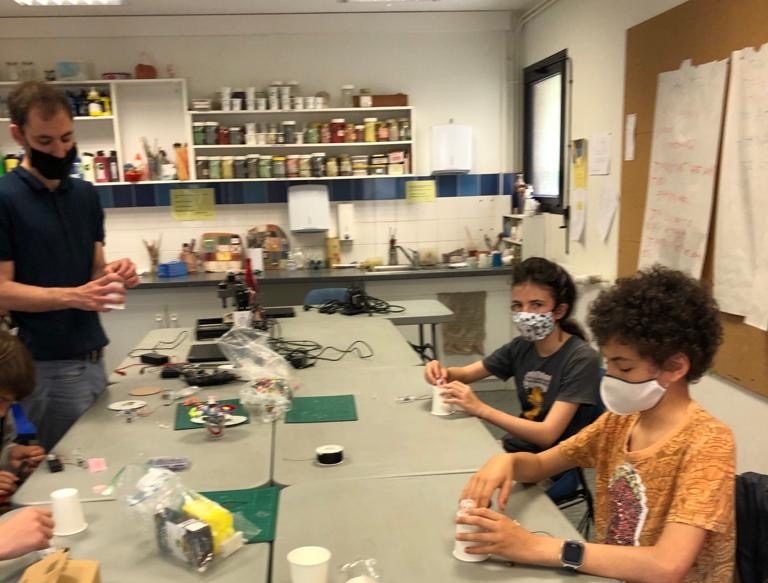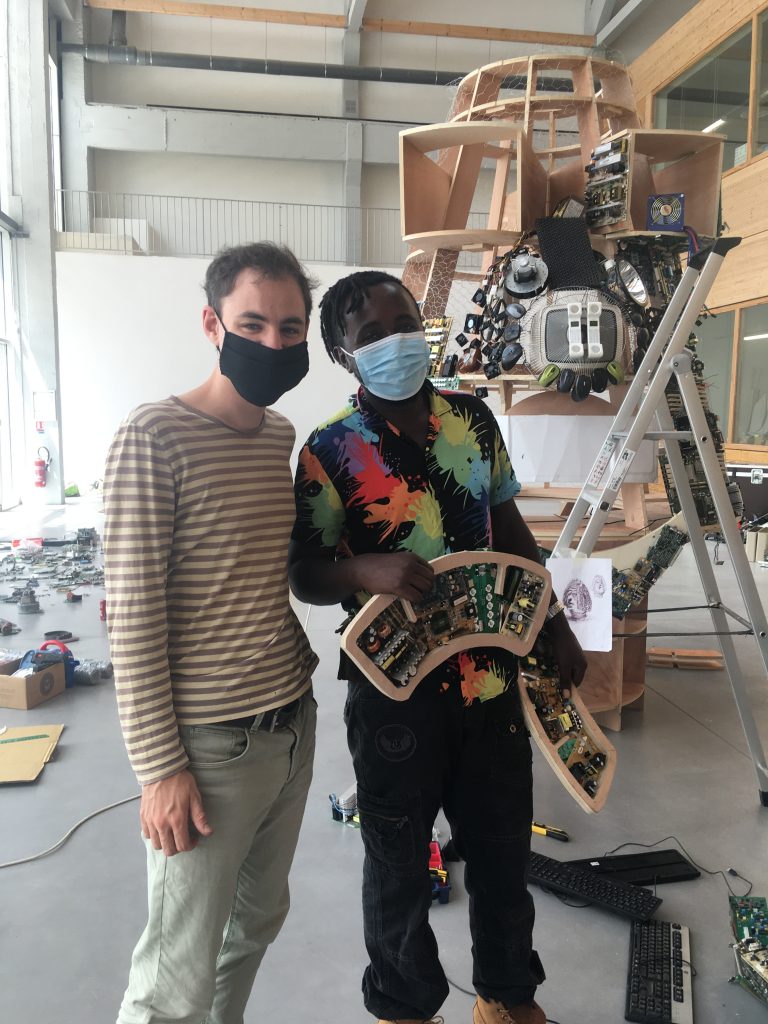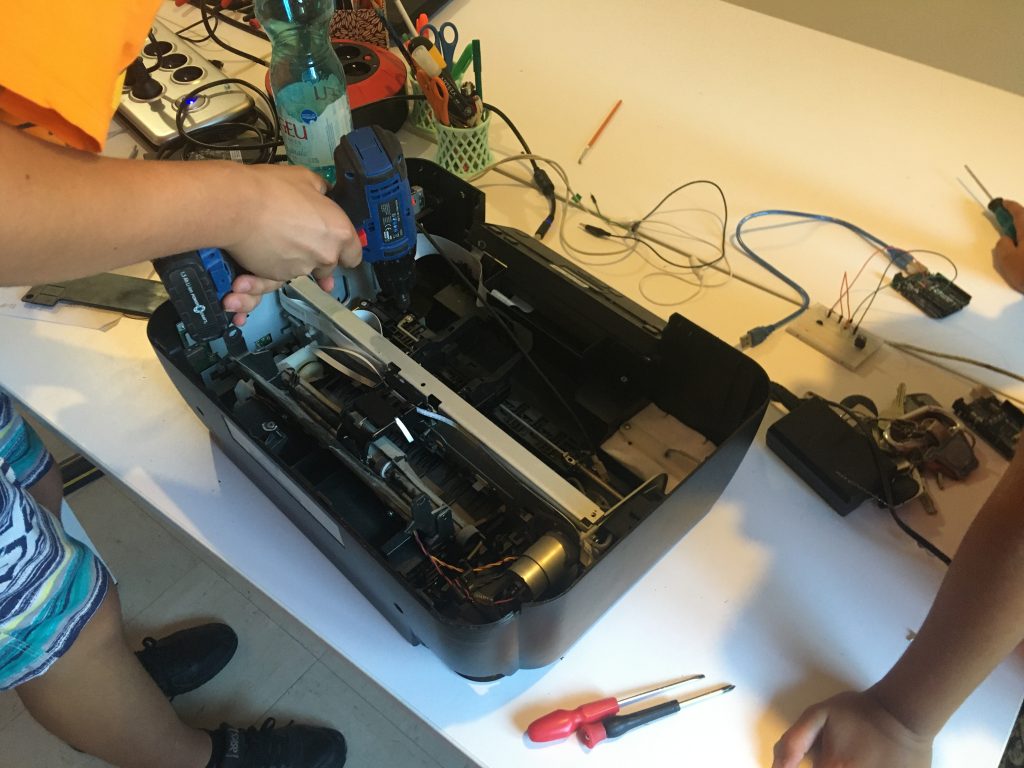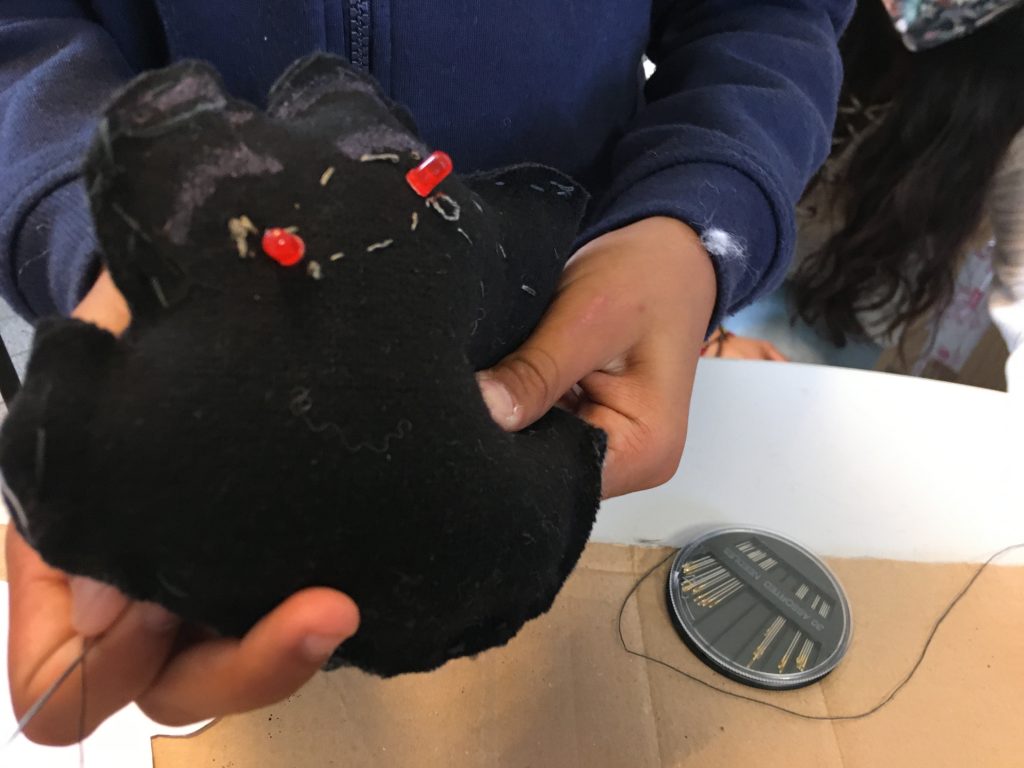MakersXchange: Digijeunes, an interview with Simone Ferrecchia
Published 18 November 2021 by la rédaction
For MakersXchange (MAX), a study on the mobility of makers, the European Creative Hubs Network is conducting a series of in-depth interviews aiming to explore the needs of makers in relation to mobility programmes as well as highlight good practices for social inclusion and skills development. Meet Simone Ferrecchia from Digijeunes.
Digijeunes is an NGO that focuses in education for young people interested in technology and making. Simone Ferrecchia, the project manager of Digijeunes met with ECHN and provided MAX project with his insights.
MkersXchange : Can you briefly describe your organization? Is your organization addressed to makers? Do you host makers activities?
Simone Ferrecchia: Since we focus in maker education, our target group is primarily young people, aged nine years old and above but we also work with young adults 15 to 18 years old. We are not exactly a FabLab or a makerspace and we don’t have our own premises, since we are usually mobile. For example, when we work in partnership with youth centres or schools, we visit their premises to develop our activities.
In that regard, since we do not have our own place for making, I wouldn’t say that our primary target group is makers, but we do work closely with them. When we need to come up with a plan for a course of sessions at a school on let’s say robotics or electronics, we can get in contact with a volunteer maker or somebody interested in in these topics and they can prepare the plan, work with us and deliver the workshop.
We mainly deliver activities for young people interested in making. Sometimes we have mixed groups, consisted of parents and young people. So, in that regard, we can say that we also deliver activities for adults, even though the actual focus is on the young people. The adults are there mainly to accompany their kids.

Have you participated in any mobility programs for makers in the past? Could you elaborate on your experience?
Simone Ferrecchia: We have actually organized some mobility activities on making and maker education. The target group wasn’t exactly makers, but youth workers, with a passion for making or interested in the whole spectrum of DIY practices. We also came into contact with Vulca, which is a programme that involves mobility for makers. One of our members, travelled abroad with Vulca and he went on setting up a FabLab in Poland, where they hosted a mobility programme.
From your experience, what would be the challenges that makers face regarding mobility?
Simone Ferrecchia: There are some challenges that I can think of and I would say that they are part of the common challenges that all human beings face, mostly related to cultural differences, or diversity in general. We have noticed that some profiles are a lot more likely to travel abroad than others, whether we are talking about group of makers or any other group of people.
For example, if you take a group of makers and within this group there are people who have already experienced mobility abroad at some point, they are usually more likely to join in similar programmes. On the other hand, we have noticed that sometimes it might be hard to motivate people who are completely new to this concept, at least in France.
We have also noticed that some cultures might be more open to participate in mobility programmes and interact with people from abroad. From our experience, all things being equal, if you take a group of makers for France and group of makers from Albania, you would have a lot more makers from Albania willing to travel abroad and interact with the rest of the maker community.
Another challenge would be that there are very few opportunities for makers today. We know about the Vulca program, but I haven’t heard of many other similar initiatives. Apart from that, makers might not be even aware of the available opportunities that exist in order to take advantage of them.

From your experience, would you like to add any good practices?
Simone Ferrecchia: I would say to take some time and break the intercultural barrier. We should never forget that, even though it might be taken for granted. People should have some time at their disposal to get to know each other before starting working on their projects. That might be a good practice to include in any mobility scheme for makers along with the standard icebreakers that are inspired from intercultural exchanges.
Another good practice that is also part of the maker culture, is to be open as much as possible. I would also highlight that the fact of being a maker does not mean that you are part of a restricted group. Makers’ mobility can be pretty much for anyone as long as they share the values of maker communities and making.
How do mobility experiences bring value to you organization and your community?
Simone Ferrecchia: From the start, when we set up the organization, we engaged with mobility programs. Basically, that’s how we learned to do our work, because each time, it was an exchange of experiences and good practices. We got our tools from mobility programmes, we got our methods, we got inspired, we got motivated as educators meeting other maker educators.
It was crucial to motivate ourselves to do our daily work with young people in our respective communities. Mobility programmes always give us something to look forward to, because our group of people has always been interested in traveling. The possibility of travelling abroad gives us something to look forward to and we motivate ourselves to wait until that day.

Do you think that mobility is a chance for better connecting with the local community?
Simone Ferrecchia: That’s an interesting question, as mobility motivates those who participate in it to do their work better and this is obviously connected to the communication with the local communities. When you travel abroad, you need to open up and to develop your communication skills. It’s very interesting to see, no matter how far you travel, that people share the same concerns in different communities. So, after interacting with these people, you can be inspired to tackle these concerns, when you return home.
Mobility participants need to be open to diversity too. When you’re travelling internationally, you are more likely to engage with the different people that exist within your local community, when you return home. You broaden your perspective and you become able to see and relate with the concerns of your local community, which is something that you might not have been capable of doing, before traveling abroad.
What would be the dream mobility scheme for makers? Would you give priority to travel support to social encounters technical access or network building?
Simone Ferrecchia: I would focus resources mostly on preparation: in setting up the mobility programme and making sure that people make the most of their time abroad because time is always limited. During the mobility I would focus on time, on financial support and connecting with other realities. For example, you travel abroad and you explore other maker spaces, but at the same time, you can also explore other initiatives, not necessarily run by makers, such as: plastic recycling schemes run by individuals, or any initiative that might act as an inspiration for you. If you focus on the social aspect, you can get in contact with other makers and professionals from the tech sector, since makers are intimately connected with technology.

What is mobility in the in times of world pandemics? Should we still invest in that? And considering the travel restrictions how can we continue to grow and reinforce on our networks if we cannot meet each other? And why is this important?
Simone Ferrecchia: I know that for maker education there have been a lot of initiatives, since 2020 that enable educators to connect with one another, remotely. There are also some initiatives that enable groups of young people to engage both with maker education and with their peers abroad by participating in joint workshops. A lot of resources are being invested in this front.
An issue that might rise is that people sometimes forget about this concept of mobility. In that regard it is important to invest and keep investing and trying, despite the challenges, so that you can keep some of the expectations alive. Personally, I’m pretty positive about the whole situation. Because I feel that we are slowly getting back to being able to travel again. We can pretty much travel anywhere in Europe today. So as far as Europe is concerned, I think that we are fine and the worst is all behind us.
MakersXchange is a Pilot policy project co-funded by the European Union. MAX project is implemented by the European Creative Hubs Network, Fab Lab Barcelona, UPTEC and Makery.
Find out more about Digijeunes
